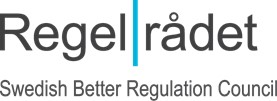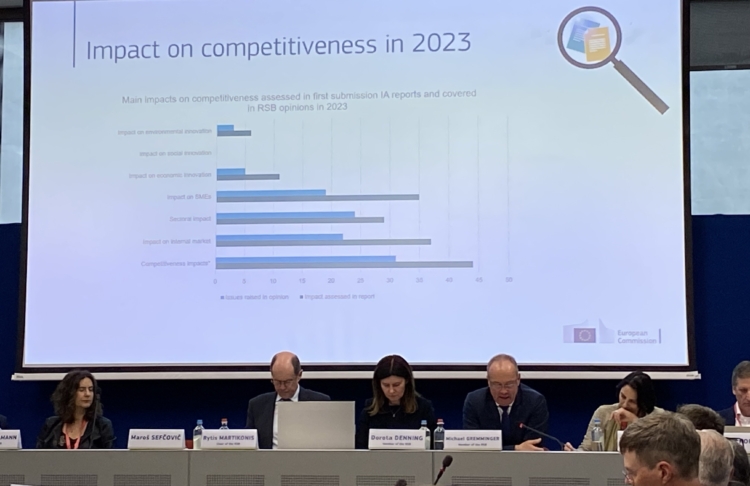On the 22nd of May, the Regulatory Scrutiny Board (RSB) of the EU Commission, arranged its sixth annual conference. The point of departure for presentations and discussions was its annual report for 2023, which contained special features on the scrutiny of the impacts of regulatory proposals on competitiveness and consumers.
It was argued that there are no clear conclusions on trends on the quality of Commission Impact assessments or evaluations to be drawn in comparison to previous years and that legislators as well as scrutiny bodies face many challenges.
Different definitions and aspects of competitiveness is one challenge. The need for a consistent definition by the Commission – and RSB scrutiny – of the new so called competitiveness check was emphasized.
Another challenge is the increasing use of delegated and implementing acts as a way to break deadlocks in negotiations. The lack of impact assessments in these cases defers difficulties to the future and tend to become even greater.
Further challenges that were highlighted were difficulties in collecting data and to monetarize costs and – not the least – benefits. Better data from member states was requested, as data sometimes is completely lacking in certain areas or from certain member states.
The need for analysis and scrutiny throughout the entire policy cycle was underlined. The European Parliament and the Council were encouraged to fulfil their commitments in the interinstitutional agreement on better law-making from 2016, by carrying out impact assessments to substantial amendments in negotiations. The importance of analysing the cumulative burden was emphasized and proposals of incentives to promote ex post evaluation as well as scrutiny of evaluation were put forward.

